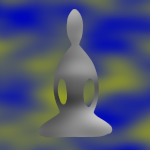Dear Friends,
Continuing with Sally Armstrong’s talk, “Facets of Equanimity,” looking at equanimity as an expression of wisdom, and in particular into the notion of karma (kamma).
I appreciate that Sally spends a bit of time debunking some of the misunderstandings around the Buddha’s teachings on karma. I recall a meme that was circulating a while ago that said something like, “Welcome to Karma Cafe. There are no menus. You will get what you deserve.”
Sally says, this type of thing “is not a wise use or understanding of kamma at all.”
Jack Kornfield writes:
The term karma refers to the law of cause and effect. It means that what we do and how we act create our future experiences. If we are angry at many people, we start to live in a climate of hate. People will get angry at us in return. If we cultivate love, it returns to us. It’s simply how the law works in our lives. … To understand karma is wonderful because within this law there are possibilities of changing the direction of our lives. We can actually train ourselves and transform the climate in which we live. We can practice being more loving, more aware, more conscious, or whatever we want.
~ Seeking the Heart of Wisdom: The Path of Insight Meditation, page 5
Whatever conditions have brought us to this moment are as they are. We can’t figure out all the reasons why it is this way. What we learn from this teaching on karma is the choices I make now will have an impact. What can I do now to sow the seeds of love, compassion, and wisdom?
The way I’ve heard this summarized is, what we do matters.
Guided meditation: Nikki Mirghafori led this meditation to notice the conditionality of mind and body, and to notice supportive conditions, about 22 minutes with some comments that follow.
https://www.dharmaseed.org/teacher/555/talk/51202/
Feel free to share your reflections or comments below, or by email.
With warm wishes,
Andrea

A related post I just came across from Phillip Moffitt:
“You do not have a choice about your personal history. For reasons of heredity, chance, environmental circumstances, and your own actions, your life is as it is at this time. But, you can choose from your history those things that will lead you to a deeper relationship with your true nature.”
http://dharmawisdom.org/teachings/articles/realizing-your-true-nature